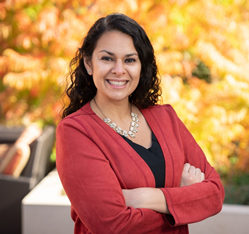
Dr. Narjust Florez, Dana Farber Cancer Institute in Boston.
“Sexual health should be integrated into thoracic oncology care, and further research is necessary to develop tailored interventions for patients with lung cancer,” Dr. Florez said.
WIENNA, Austria (PRWEB)
August 09, 2022
Survey on Sexual Health Among Women with Lung Cancer Reveals High Levels of Sexual Dysfunction
(Vienna, Austria)–According to survey data reported today, sexual dysfunction is highly prevalent in women with lung cancer with most survey participants reporting little to no interest in sexual activity. The survey results from the Sexual Health Assessment in Women with Lung Cancer (SHAWL) Study were reported today at the IASLC World Conference on Lung Cancer 2022 in Vienna.
“Most of the data regarding sexual dysfunction in patients with lung cancer precedes the approval of targeted therapy and immune checkpoint inhibitors,” said Dr. Narjust Florez, Dana Farber Cancer Institute in Boston. “We report the results of the SHAWL study, the largest study to date evaluating sexual dysfunction in women with lung cancer.”
The SHAWL study is a cross-sectional, IRB-approved, global survey study administered via the GO2 Foundation Lung Cancer Registry. The study utilized the Patient-Reported Outcomes Measurement Information System (PROMIS®) Sexual Function and Satisfaction Measures (a validated questionnaire) to evaluate sexual health. Study participants were recruited between June 2020 to June 2021.
Eligibility criteria included age over 18 years, self-identifying as a woman, fluency in English, and an LC diagnosis. Participants were asked about sexual activity pre-lung cancer diagnosis and over the “past 30 days” prior to completing the survey.
Of the 249 women who completed the survey. Most (64%) patients had stage IV lung cancer and 107 (45%) were receiving targeted therapy with 93 of those (87%) taking the medication for more than six months. At the time of survey completion, 78 participants (33%) were taking anti-depressants and 34 (14%) were taking beta-blockers. Within the prior 30 days, 127 (53%) participants had sexual activity with themselves or someone else. 183 (77%) participants reported little to no interest in sexual activity, and 159 (67%) stated rarely or never wanting to have sexual activity. The most common reasons negatively affecting participants’ satisfaction with their sex life (very much to somewhat) included fatigue 95 (40%), feeling sad/unhappy 66 (28%), issues with their partners 52 (22%), and shortness of breath 36 (15%).
Out of the 127 participants that had sexual activity in the last 30 days, 75 (59%) reported significant issues with vaginal dryness and 63 (26%) vaginal pain/discomfort during sexual activity. When comparing before and after lung cancer diagnosis, marked differences were noted in decreased sexual desire/interest (15% vs. 31%, p less than 0.001) and vaginal pain/discomfort (13% vs. 43%, p less than 0.001).
Dr. Florez reported that fatigue, feeling sad/unhappy and shortness of breath were the most common reasons negatively affecting participants’ sex life satisfaction and shows the differences with other cancers and the need to use lung cancer-specific data while treating patients with lung cancer and sexual dysfunction.
“Sexual health should be integrated into thoracic oncology care, and further research is necessary to develop tailored interventions for patients with lung cancer,” Dr. Florez said.
About the WCLC:
The WCLC is the world’s largest meeting dedicated to lung cancer and other thoracic malignancies, attracting more than 7,000 researchers, physicians and specialists from more than 100 countries. The goal is to increase awareness, collaboration, and understanding of lung cancer, and to help participants implement the latest developments across the globe. The conference will cover a wide range of disciplines and unveil several research studies and clinical trial results. For more information, visit https://wclc2022.iaslc.org/.
Share article on social media or email:

